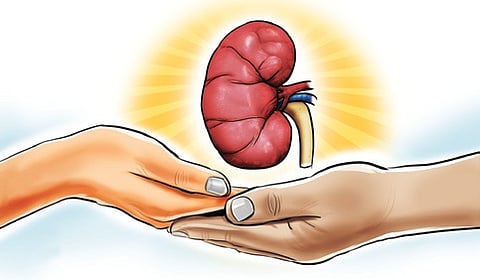

KOCHI: In response to rising cases of kidney-related ailments, the state government is set to launch Paediatric Renal Assessment, Treatment and Intervention in Kerala State (Pratiksha), a pioneering programme aimed at early detection and treatment of renal diseases in children.
The initiative, spearheaded by the health department, seeks to provide comprehensive care and follow-up to infants with kidney diseases, thereby reducing the risk of complications.
The programme is slated to launch by the end of the month, with Health Minister Veena George emphasising the importance of creating a safety net for children with renal illnesses. By addressing kidney afflictions early, Kerala aims to improve the health outcomes of its young population.
“The programme aims at early detection and intervention of kidney disease in newborns and children by initiating comprehensive multidisciplinary intranatal, postnatal, and post-intervention care and follow-up by a team of doctors to reduce chronic kidney disease (CKD) burden and the need for dialysis and transplant in the community,” the minister told TNIE.
“Most of the congenital anomalies of the kidney and urinary tract can be detected during pregnancies through antenatal scanning. Sometimes, these conditions may disappear after birth. Those with kidney diseases identified even from the antenatal period will be registered under the scheme and followed up,” a senior official with the state Directorate of Health Services said.
“Necessary treatment, including dialysis and renal transplantation, and overall improvement in quality of life can ensured for these children,” the minister added.
For effective implementation of the project, DEIC coordinators have been assigned and trained to communicate with families and ensure follow-up treatment. The initiative, in the later stages, will aim to provide renal transplant surgeries.
According to Veena, creating a database of the high-risk population can help plan strategies to combat CKD.
“End-stage renal disease (ESRD) is a devastating medical, social and economic problem with catastrophic health expenditure. Most of the kidney failure in adolescents and young adults is due to diseases that start in infancy or childhood.
Children with congenital and genetic abnormalities of the kidney are at high risk of kidney failure as they grow up. Early diagnosis and timely intervention strategies in infants and children will go a long way in averting many cases of kidney failure requiring dialysis and transplantation,” she said, adding that prevention is the ultimate solution for related diseases, which have social and financial implications.
“Kidney health issues can be addressed, or their progression can be slowed, with early detection and treatment. Most of the time, patients or a child’s parents do not follow up after birth and only see a doctor when symptoms appear. The illness may advance by then, leading to complications with therapy. Pratiksha aims to avoid such circumstances,” added the official.
To set up new portal
A portal for patients and hospitals will be set up under Pratiksha where cases identified during antenatal scanning and in the postnatal period can be registered. Through district early intervention centres (DEICs), treatment – medication or surgical interventional procedures – will be provided. Five medical colleges have been selected to provide treatment facilities, and Sree Avittam Thirunal (SAT) Hospital, Thiruvananthapuram will be the hub of the project